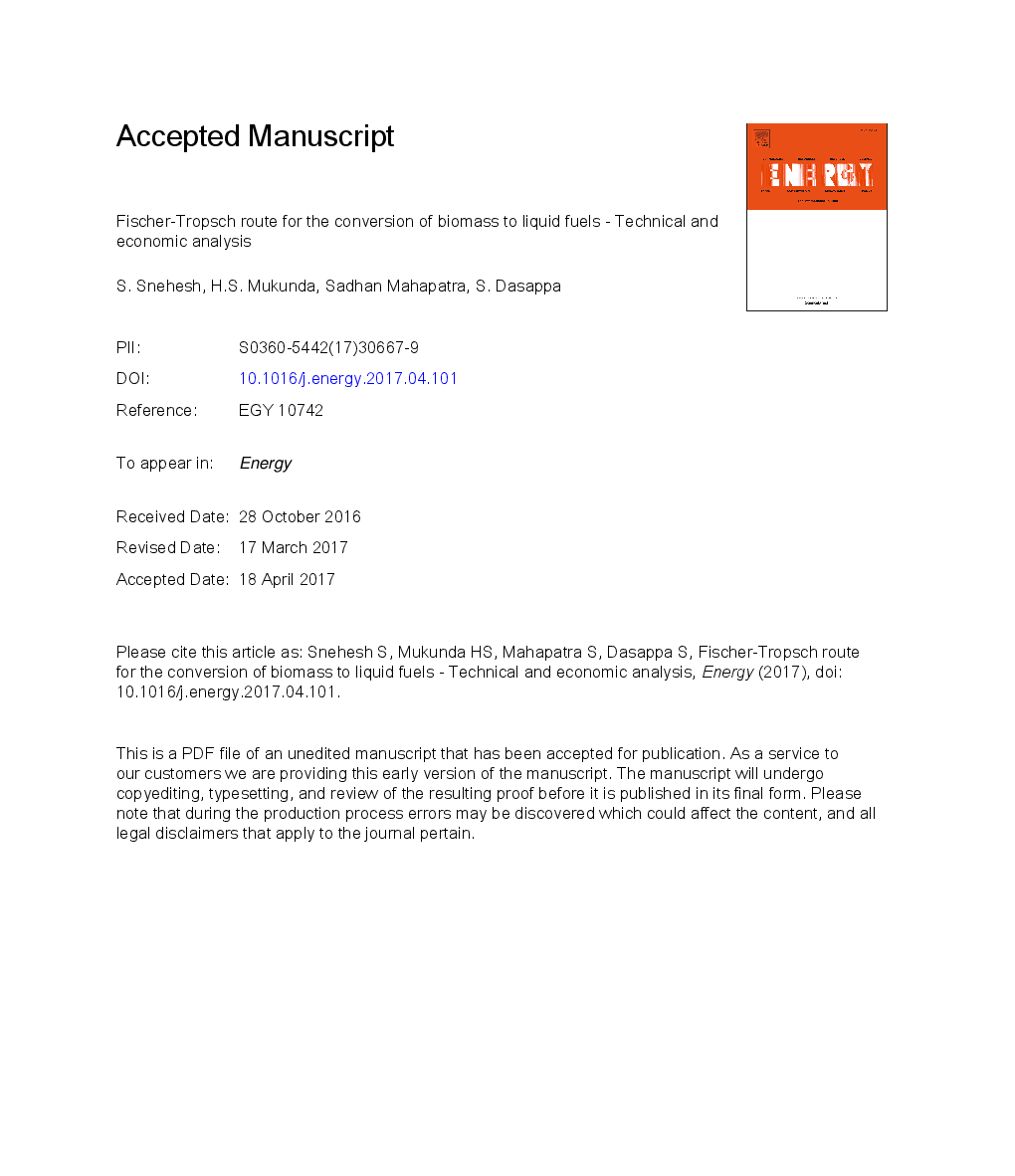ترجمه فارسی عنوان مقاله
مسیر فیشر تروپچ برای تبدیل زیست توده به سوخت مایع - تجزیه و تحلیل فنی و اقتصادی
عنوان انگلیسی
Fischer-Tropsch route for the conversion of biomass to liquid fuels - Technical and economic analysis
| کد مقاله | سال انتشار | تعداد صفحات مقاله انگلیسی |
|---|---|---|
| 112960 | 2017 | 39 صفحه PDF |
منبع

Publisher : Elsevier - Science Direct (الزویر - ساینس دایرکت)
Journal : Energy, Volume 130, 1 July 2017, Pages 182-191
ترجمه کلمات کلیدی
گازسیون زیست توده، فیشر تروپس، سوخت مایع، تجزیه و تحلیل تکنولوژیکی و اقتصادی،
کلمات کلیدی انگلیسی
Biomass gasification; Fischer-Tropsch; Liquid fuel; Techno-economic analysis;

